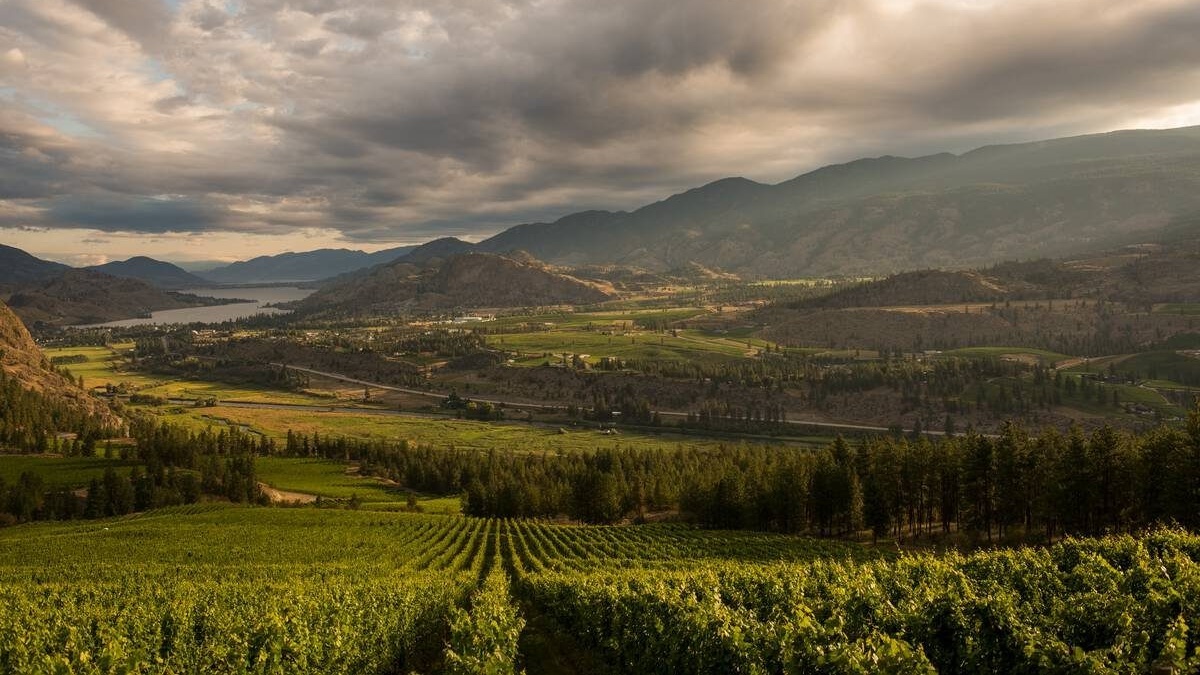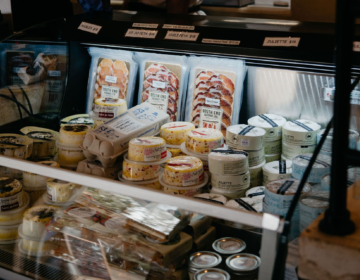With the sun shining brightly during the day and the evenings filled with peace and cool, there is no doubt that a glass of high-quality wine can be the perfect end to a summer’s day. Globally, wine is also known to have positive effects on people's health and age-related changes. In light of this, we can see that wine is celebrated around the world and is a part of most cultures.
However, did you know that today, wineries and vineyards across the globe actively work not only on the spectacular taste of their wines but also contribute to the carbon offset process by using regenerative farming methods?
As the Thompson Okanagan Tourism Association team, we want to tell you more about regenerative agriculture and highlight how local wineries and vineyards of the Thompson Okanagan are implementing regenerative practices in order to reduce their carbon footprint and preserve the land.
Thompson Okanagan's wineries are known for their high quality and spectacular tasting wines. The rich variety of wines in the region attracts tourists from around the world who wish to learn more about its history and try eco-healthy products. Thompson Okanagan’s vineyards proudly support sustainable practices and successfully work on improving regenerative farming conditions.
Farming and grazing practices based on regenerative agriculture contribute to climate change issues by restoring soil biodiversity and repairing soil degradation. These practices have a significant impact on the carbon offset progress and the water cycle.
The interesting fact is there is a difference between sustainable and regenerative farming in that the first one seeks to prevent harmful farming impacts, while the second one aims to enhance soil conditions in order to improve efficiency and reduce negative consequences.
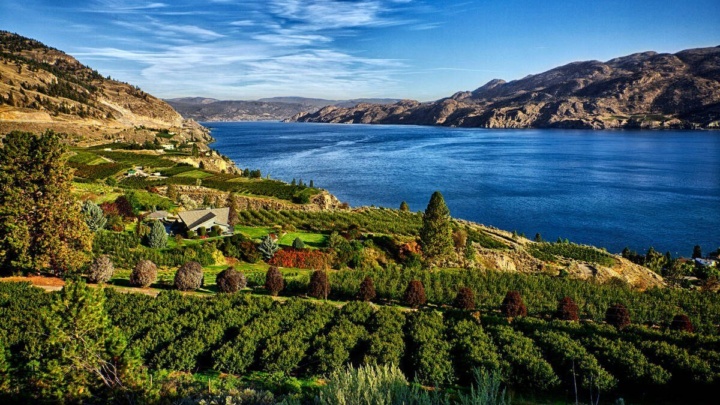
It is good to know that investment in soil restoration can be beneficial not only for the future of our planet, but also for business growth. Using regenerative methods, farmers can increase food production, income, and topsoil quality by applying such organic farming practices as planting specific kinds of seeds (for ex., mustard) to slow erosion and improve soil health or to grow different kinds of crops on the same land in order to control erosion and moisture the soil and many other methods.
Modern vineyards use a variety of regenerative technologies in order to reduce their carbon footprint. Our team would like to introduce you to local sustainable vineyards that successfully apply regenerative farming techniques to their production - Monte Creek Winery, Covert Farms Family Estate Winery, and Tantalus Vineyards.

-
Monte Creek Winery
Kamloops, BC
Visit websiteMonte Creek Winery is a recognized Thompson Okanagan sustainable vineyard, and participant of the Biosphere Commitment Program, which is dedicated to regenerative trends and implementing them in their daily operations. The winemaking philosophy at Monte Creek Winery is to produce wines with minimal intervention.
The winery shared with our team that Regenerative Techniques at Monte Creek include an organic compost program, a bird box trail, and using cover crop blends with Indigenous species. Monte Creek is proud to be Salmon-Safe Certified, which recognizes and rewards responsible eco-friendly management practices that protect Pacific Salmon habitat and enhance water quality on agricultural and urban lands.
Monte Creek Winery believes that every aspect of a farm, including the soil, water, climate, crop, people, and even buildings, needs to be carefully scrutinized as to how it relates to the other aspects to improve sustainability. When possible, businesses should strive to lessen their impact on nature while maximizing working with it.
By implementing regenerative agriculture practices, Monte Creek has achieved great improvements in soil health, an increase in biodiversity on the property, and a reduction in waste production. The TOTA team strongly believes that the winery's regenerative strategy is incredibly impressive and its results contribute greatly to environment preservation. The winery’s regenerative experience and accomplishments is a great example of significant climate change actions in order to inspire others to start their own regenerative journey.
-
“
Regenerative farming actually isn’t a new technique. This type of farming was lost for a while with the industrialization of farming. Going back to our roots, back to the way things used to be isn’t as hard as you think. Every little action can build up to make a big difference.
-
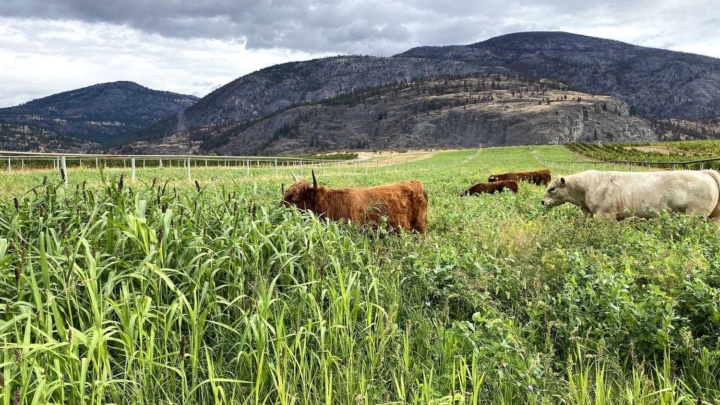
Covert Farms Family Estate Winery | Photo credit: Shari Saysomsack -
Covert Farms Family Estate Winery
Oliver, BC
Visit websiteCovert Farms Estate Winery is a regenerative vineyard and a Biosphere Committed Business, which actively promotes regenerative and sustainable farming trends and successfully contributes to the carbon offset processes.
Covert Farms Family Estate Winery was established in 1959 and is a fourth-generation 650-acre organic farm, vineyard, and winery. For the winery, the core theme of regenerative farming is constantly improving soil health, which leads to improved plant health. In their case, it provides optimized flavour and varietal characteristics of their grapes and results in a more resilient vineyard to climate variations.
The winery has been certified organic since 2005 and biodynamic since 2008, they made the switch to regenerative farming six years ago. They promote the following practices:
- Land stewardship, including avoidance of mechanical disturbances, which damages the soil and organic matter underground;
- Cover crops to protect the earth from scorching sun and other climate extremes;
- Crops rotation to create a balanced and varied ecosystem;
- Livestock integration throughout the entire landscape. They have nearly 30 Highland cows that graze their vineyards, and push nutrients deep into the soil.
Another impressive fact about Covert Farms Family Estate Winery is its contribution to the regional water supply. Since regenerative farming has a great impact on the water cycle, the winery plants humus, which acts like a sponge for water and nutrients. Keeping those key resources on the farm and using them efficiently helps protect the Thompson Okanagan region’s water supply from overuse and contamination from runoff.
Over the last five years, Covert Farms Family Estate Winery has determined outstanding results such as ever-increasing organic matter in their vineyard soils, as well as reductions in fertility need and water. Of course, changes cannot always be linear and progressive. Despite the heat, smoke and pests, the winery successfully continues to contribute to land preservation and carbon emission reduction.
The winery’s experience is a great example of the successful implementation of regenerative farming practices, which bring benefits to both the vineyard and the planet.
-
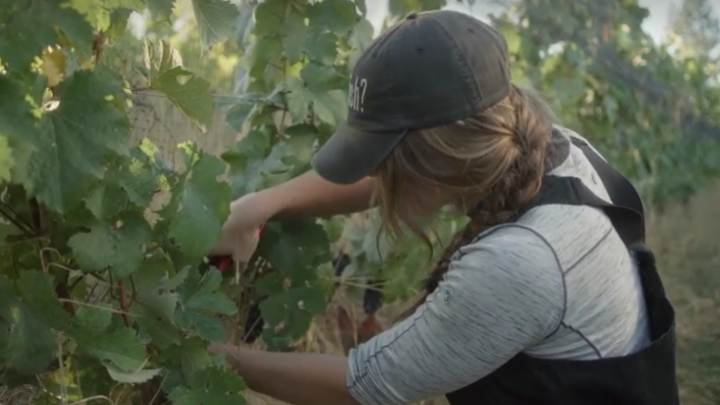
Tantalus Vineyards | Photo credit: Destination British Columbia -
Tantalus Vineyards
Kelowna, BC
Visit websiteTantalus Vineyards is one of the local prominent proponents of regenerative agriculture practices and an active participant of the Biosphere Commitment program. Regenerative farming is a vital pillar of their businesses' commitment to sustainability and good land stewardship.
The Tantalus Vineyards team believes that encouraging biodiversity in monoculture farming brings countless natural benefits, not only to the land and the employees who work the land, but to the health of the vines, grapes, and therefore the quality of their wines.
“It’s a small but tangible impact we can make by way of our business” - Stephanie Mosley, Marketing Manager, Tantalus Vineyards.
The team at Tantalus stepped away from the idea to get the best harvest at any price many years ago and has been working towards a holistic regenerative approach for several years now. Key additions to Tantalus’s regime were the implementation of no-till cover crops, the reduction of mowing passes (alleviating soil compaction), plant sap analysis to determine vine nutrient status, and corrective foliar application of fertilizers where needed.
Moreover, two years ago, through a partnership with the Investment Agriculture Foundation of B.C. Tantalus acquired a state-of-the-art, “no-till drill” that has allowed them to optimize the cover crop practices. Other pieces of their program include an onsite grape waste compost program and many others.
The Tantalus Winery’s team believes that regenerative farming is important in the Thompson Okanagan, since BC and the Southern Interior are seeing more and more extreme weather events. It is more important now than ever before to make a shift towards regenerative practices that correlate to carbon sequestering and improved water retention and biodiversity. They stand behind ensuring better health and resiliency in their farms and crops, by way of regenerative practices ,to help ensure greater economic viability for not only the winery, but their communities too.
-
“
It’s not complicated and it’s a lot more unlearning than learning. It’s shifting the ideology of farming away from the ag-chem era and returning to a time before synthetic fertilizers and pesticides took over.
The Thompson Okanagan region’s wineries are bravely facing all obstacles on their way to become more regenerative and positively influence on the local environment conditions. The mentioned examples are full of inspiration and strong motivation for everyone who has a desire to improve their eco-behaviour. They are sure the regenerative way is possible for both individuals and businesses and their experience is evidence of successful regenerative farming practices implementation.
Mindful travellers who are looking to enjoy a destination’s wineries should try to choose wineries that follow regenerative farming tendencies as they contribute significantly to the planet’s future. It is important to remember that there is no quick and easy way to change the world, but there is a right way and businesses like Monte Creek Winery, Covert Farms Family Estate Winery, and Tantalus Vineyards are ready to help you to find it.
This story has been adapted from an original article available at: https://www.thompsonokanagan.com/content/2022/regenerative-farming-in-thompson-okanagan.
